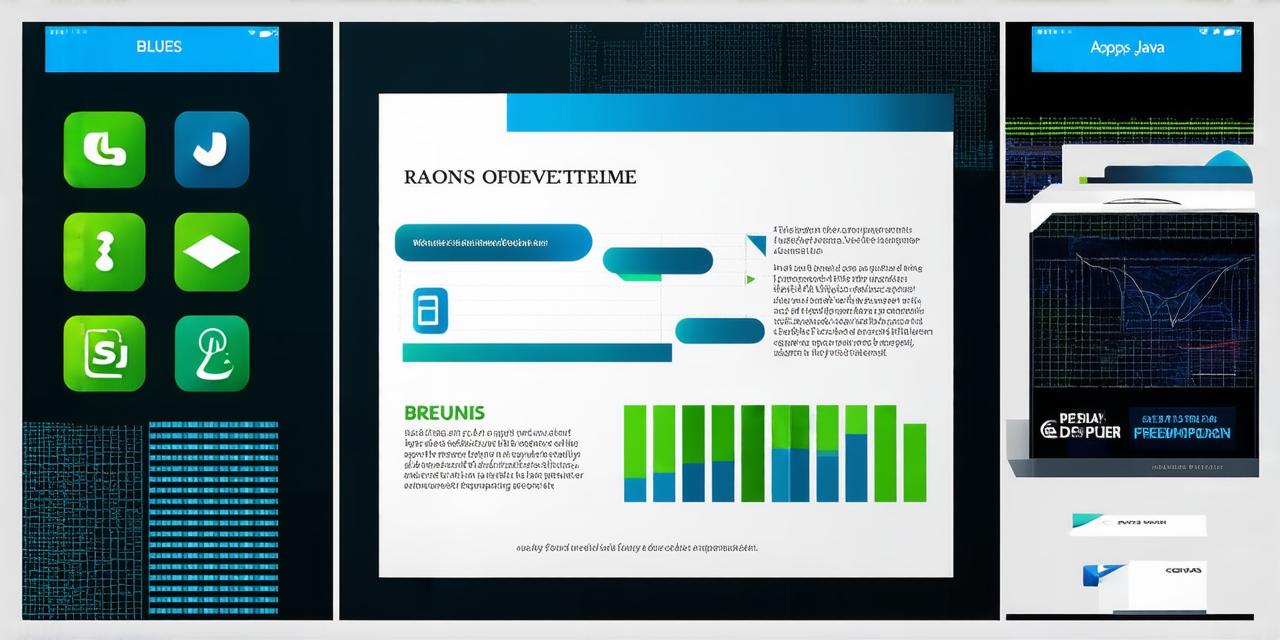Reasons for developing apps in Java
Introduction
As the world becomes more digitized and mobile devices become an integral part of our daily lives, the demand for mobile applications is increasing at a rapid pace. While there are numerous programming languages available for app development, Java has emerged as one of the most popular and widely used languages due to its robustness, scalability, and flexibility. In this article, we will explore the reasons why developers should consider developing apps in Java, including its advantages, disadvantages, and use cases.
Advantages of Developing Apps in Java
1. Platform Independence
One of the biggest advantages of developing apps in Java is platform independence. Java applications can run on any device or operating system that has a Java Virtual Machine (JVM) installed, including Windows, Linux, macOS, and Android. This means that developers only need to write the code once and deploy it on multiple platforms without having to worry about compatibility issues.
2. Large Community Support
Java has a large and active community of developers who contribute to its development and provide support to users. This community support is a significant advantage for app developers as they can easily find solutions to problems they encounter during the development process. Additionally, the community also provides a wealth of resources, including tutorials, documentation, and forums, that can help developers learn new skills and stay up-to-date with the latest trends in Java development.
3. Cross-Platform Development
Java supports cross-platform development, which means that developers can create apps that run on multiple platforms using a single codebase. This approach not only saves time and effort but also reduces the cost of app development. Java also supports the use of frameworks such as Android Studio and IntelliJ IDEA, which provide developers with an integrated development environment (IDE) for cross-platform development.
4. Scalability and Performance
Java applications are highly scalable and performant, which means that they can handle large amounts of data and users without experiencing performance issues. Java’s garbage collection mechanism ensures that memory is managed efficiently, which helps to prevent memory leaks and other performance issues that can cause app crashes and slow downs. Additionally, Java supports the use of multithreading, which allows developers to create apps that can run concurrently and efficiently, further improving performance.
5. Easy Maintenance and Updates
Java applications are easy to maintain and update, which means that developers can make changes to the code without having to worry about breaking existing functionality or causing compatibility issues with other platforms. This makes it easier to keep apps up-to-date with the latest features and security patches. Additionally, Java’s versioning system ensures that developers can easily manage different versions of their codebase and deploy them on different platforms.
Disadvantages of Developing Apps in Java
1. Learning Curve
Java has a steep learning curve for beginners, as it requires a good understanding of programming concepts such as object-oriented programming (OOP), inheritance, polymorphism, and concurrency. This can make it difficult for beginners to get started with Java development, but there are numerous resources available online that can help them learn the language.
2. Complexity
Java applications can be complex and difficult to manage, especially when dealing with large codebases or complex systems. The complexity of Java applications can make it challenging to maintain and update them, which can lead to performance issues and compatibility problems. However, the use of frameworks and tools such as Spring and Hibernate can help to simplify Java application development and management.
3. Security Issues
Java has been vulnerable to security issues in the past, particularly with regards to buffer overflows and SQL injection attacks. While these issues have been addressed through security patches and updates, developers still need to be vigilant when developing Java applications to ensure that they are secure. Additionally, Java’s use of dynamic binding and reflection can make it more difficult to detect and prevent certain types of security threats.
4. Performance Issues
While Java is known for its performance, it can still suffer from performance issues under certain circumstances. For example, Java’s use of garbage collection can cause performance problems if memory usage is not managed efficiently, and Java’s use of multithreading can lead to synchronization issues that can affect app performance. Additionally, Java applications that rely heavily on I/O operations can suffer from slow performance if the network connection is slow or unreliable.
Use Cases for Developing Apps in Java

1. Enterprise Applications
Java is widely used for developing enterprise applications due to its scalability, security, and flexibility. Java’s use of OOP and JVM makes it easy to create modular, reusable code that can be easily maintained and updated. Additionally, Java’s support for transaction management and data persistence makes it an ideal choice for mission-critical applications that require high availability and performance.
2. Web Applications
Java is widely used for developing web applications due to its scalability, security, and flexibility. Java frameworks such as Spring and Hibernate provide developers with an integrated development environment (IDE) for building web applications quickly and efficiently. Additionally, Java’s support for multithreading and concurrency makes it easy to create scalable, high-performance web applications that can handle large amounts of traffic.
3. Mobile Applications
Java is widely used for developing mobile applications, particularly for Android devices. Java frameworks such as Android Studio and IntelliJ IDEA provide developers with an integrated development environment (IDE) for building Android apps quickly and efficiently. Additionally, Java’s support for cross-platform development means that developers can create apps that run on multiple platforms using a single codebase, further reducing development time and cost.
4. Embedded Systems
Java is widely used for developing embedded systems due to its scalability, reliability, and flexibility. Java frameworks such as Java ME provide developers with an integrated development environment (IDE) for building embedded systems quickly and efficiently. Additionally, Java’s support for concurrency and multithreading makes it easy to create high-performance, real-time systems that require low latency and deterministic behavior.
Conclusion
In conclusion, developing apps in Java has numerous advantages, including platform independence, large community support, cross-platform development, scalability and performance, and easy maintenance and updates. However, there are also disadvantages to consider, such as the learning curve, complexity, security issues, and performance issues. Additionally, Java is widely used for enterprise applications, web applications, mobile applications, and embedded systems due to its robustness, scalability, and flexibility. Ultimately, whether or not developing apps in Java is the right choice will depend on the specific needs and requirements of the application.
